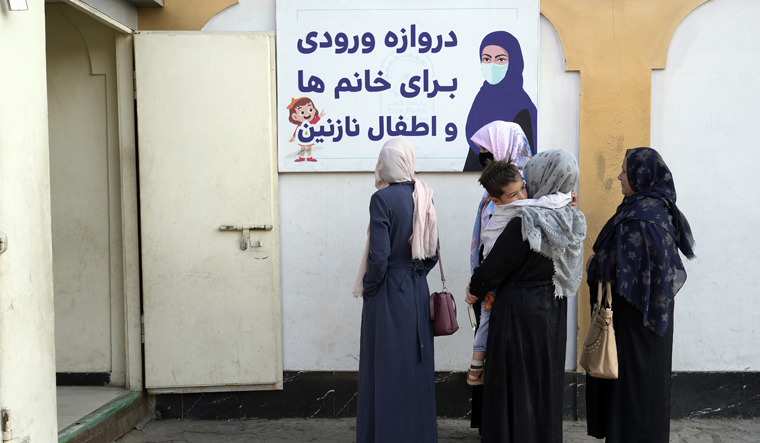Tuesday, August 15, marks two years since the Taliban returned to power in Afghanistan. Taliban returned to power after the US troops withdrew from Afghanistan, 20 years after an inconclusive war; the group said they were going to restore security in the country under an Islamic system.
Women, however, seem to be paying a heavy price since the militant group took over. "We are going to allow women to study and work within our framework. Women are going to be very active in our society," the Taliban announced in their first press conference shortly after seizing power. They have far from kept their promise.
In September 2021, secondary schools opened for boys. The official announcement made no mention of girls. Reportedly, the girls were told locally not to attend school. The same week, women working at the Kabul city administration were told to stay home. Only women with jobs that could not be done by men were allowed to continue.
In December 2021, the Virtue and vice ministry issued an order stating that women need to be accompanied by a male relative if they are travelling distances longer than 72km (45 miles). In the meanwhile women took to the streets protesting restrictions on working and studying. They were dealt with violently by the Taliban.
In January 2022, at least four female activists were detained; held for weeks and beaten in custody. On 21 March 2023, the Taliban education department announced "all students" would be able to return to school at the start of the new academic term, a BBC report reads. And several Taliban officials had said that girls' schools would reopen.
On May 7 2022, the government announced a decree that mandated head-to-toe clothing for women. The move was endorsed by the Taliban's supreme leader Mullah Haibatullah Akhundzada. Under the decree, women must also cover their faces, except for their eyes. Family members were asked to ensure that women followed the dress code, or they would face action. Women started wearing loose black abayas (gowns) and hijab.
Around October 2022, it was announced that girls, including those who had not completed their last year of school, could give university entrance exams. In November, a Vice and virtue ministry spokesman said that women had been banned from Kabul parks because they were not following Sharia (Islamic law). Women were also banned from going to gyms, swimming pools and public baths.
On 20 December 2022, the Taliban higher education minister ordered that education be suspended for women students in all public and private universities. The Taliban's Ministry of Economy said that local and international NGOs operating in the country should ask their female employees to stop coming to work.
In July 2023, the Taliban government announced that beauty parlours and salons be shut down, taking away the source of income for several women.


